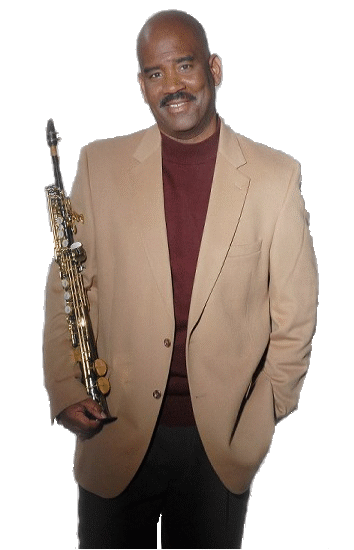|
Walter
Beasley
For nearly two
decades, saxophonist Walter Beasley has wielded his rare combination of talents
as an instrumentalist as well as a vocalist to build a compelling contemporary
jazz discography and an international reputation as a soulful live performer.
The latest installment in his growing body of work on Heads Up International is
Free Your Mind, set for release on January 27, 2009. The album is Beasley’s
musical attempt to make sense of recent emotionally charged events – some
global, some personal – that have changed his perspective on his own life in
particular and the human experience in general.
“All I wanted to do with this record was accurately reflect the times and how I
felt about them,” says Beasley, whose previous Heads Up releases include For Her
(2005) and Ready For Love (2007). “I had been working so much in the past few
years, and living this musical life so intensely, that I hadn’t taken the time
to recognize the emotional impact of some things that had been happening in my
life and in the world. With the times being what they are, I think this is a
record that can help people let go of their concerns for a while and just lose
themselves in the moment.”
Beasley’s musical journey began in the early 1970s, when he was only nine or ten
years old. His aunt gave him a record by Grover Washington, Jr., which opened
his ears and mind to the limitless possibilities of the saxophone. Shortly after
that, he bought a copy of the classic Roberta Flack & Donny Hathaway
collaborative album. These two records marked the beginning of Beasley’s musical
awakening.
“I fell in love with Hathaway’s voice, as well as the writing on that album,” he
recalls. “My favorite song on that album was ‘Be Real Black for Me.’ That really
opened up my imagination – opened up my world, really. And then there was Earth
Wind and Fire’s That’s the Way of the World. After that, I was gone. All I
wanted to do was figure out how I could move people the way I was moved by those
records.”
By his early teens, Beasley was playing saxophone in various bands around
southern California. “I started singing in Spanish at around 14,” he says. “I
was like an anomaly – the black kid in southern California, singing in Spanish.
People got a kick out of it. I learned from playing Latin music how important
romance was and is in music. Singing and playing those songs, I think, forever
shaped the way I wanted to convey messages to people.”
Beasley graduated from Berklee College of Music in the early ‘80s, alongside
some well-known classmates including saxophonist Branford Marsalis and vocalist
Rachelle Ferrell. He took a teaching position at the school a year later –
initially as a short-term gig, but one that has lasted more than twenty years.
“I was only planning on staying for a year or two, getting a record deal and
then moving back to California,” he says. “But once I saw musicians move an
audience through the use of techniques that I showed them, I was a sucker for
teaching. It was a joy. It moved me. At that point, I made a decision to learn
as much about teaching as I could. It’s very important that I give something
back and experience as many students as I can.”
He recorded his self-titled debut album in 1987 on Polydor, followed by a string
of releases on Mercury and Shanachie over the next several years. Throughout
those years, he has toured and/or recorded with the likes of Stephanie Mills,
Vanessa Williams, Brian McKnight, Gerald Albright, Kirk Whalum, Art Blakey and
the Jazz Messengers, Dexter Gordon, Bob James, Ronnie Laws, Everett Harp and
Norman Brown.
What has set him apart from other contemporary jazz artists is his unique mix of
instrumental and vocal talents. “Singing enables me to communicate in ways that
other instrumentalists can’t,” he says. “On the flip side, I can invoke emotions
and stimulate imagination when I pick up the saxophone. When you combine both of
those elements with the fact that my background is in R&B and I come from a
soulful instrumental tradition, there is, I think, a certain uniqueness to the
music I create both as an instrumentalist and a vocalist.”
For Beasley, the making of Free Your Mind has been a learning experience, not
just musically but also emotionally – perhaps even spiritually. “This is a more
mature piece of work than anything else I’ve ever recorded,” he says. “I’ve done
some growing up, and this album is a reflection of that process. You get to a
point in your life where you realize that music is not everything. It usually
happens when you start losing people who have been close to you for years and
years. That’s a wake-up call. Now I appreciate every breath I take, and every
relationship I’m in. I appreciate all the things I did right in my life, and I
appreciate all the things I did wrong too. I want all those things to be a part
of the legacy of my music. That legacy is something I’m not going to
compromise.”
|

